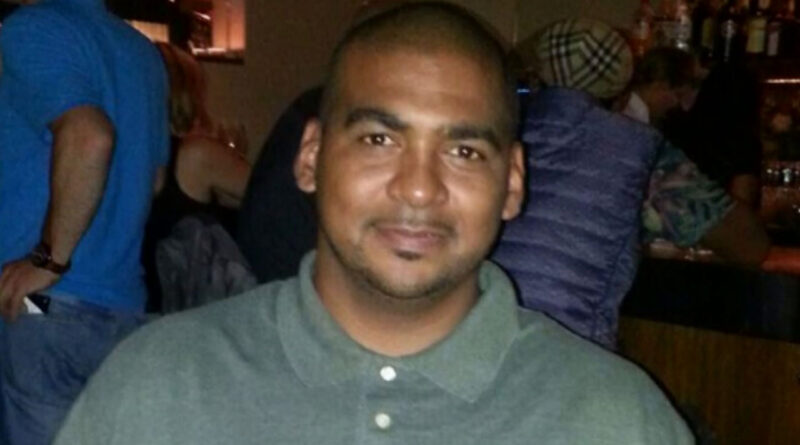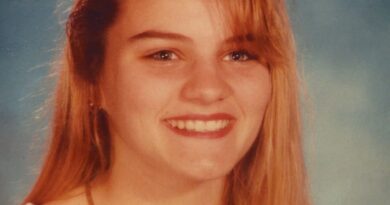Rico Omarr Harris Former Harlem Globetrotter Went Missing in Yolo County California
Rico Omarr Harris’s life once seemed destined for greatness. Born on May 19, 1977, in Los Angeles, California, Rico was the eldest of four siblings in a household with deep ties to basketball. His father, Henry Harris, had played professionally overseas, and it was expected that Rico would carry on the legacy. Standing an impressive 6 feet 9 inches tall and weighing around 300 pounds in his later years, Rico was a force on the basketball court — powerful, agile, and remarkably skilled.
But Rico’s journey wasn’t a straight path to NBA stardom. Though his talents were evident, his academic struggles and unstable home life added complexities to his path. At Temple City High School, he wasn’t just a standout — he was considered a generational talent. Recruiters from top-tier colleges took notice, and so did fans across Southern California. Yet beneath the surface of his athletic success, Rico’s life was marked by turmoil: difficult relationships, emotional volatility, and increasing pressure to succeed.
After high school, Rico played at Los Angeles City College (LACC), where he led the team to its first state junior college championship in 1997. His performance was electric — not just skilled, but magnetic. Comparisons to NBA stars like Lamar Odom weren’t just hopeful dreams; they were real possibilities.
The Turning Point and the Globetrotters
Following his dominance at LACC, Rico briefly transferred to Arizona State and then to Cal State Northridge. But college basketball did not provide the stability or exposure he needed. After repeated suspensions and conflicts with coaches, Rico never realized the full potential of an NCAA career. Instead, he took a different path — one that eventually led him to the Harlem Globetrotters.
In 2000, Rico was signed to the Globetrotters, a historic and globally recognized basketball entertainment team. For many athletes, this was a prestigious opportunity. But for Rico, it felt like a detour away from his dream of the NBA. During this time, his behavior became increasingly erratic, and trouble followed.
Tragically, later that year, Rico suffered a serious head injury during an altercation in Los Angeles. The assault left him with lingering effects, both physical and psychological, and effectively ended his professional basketball career.
Descent and Redemption
The end of his athletic journey was not just a career loss — it marked the beginning of a personal crisis. Rico’s identity had always been deeply tied to basketball. Without it, he struggled to find purpose. He drifted between jobs and began abusing alcohol and drugs. Arrests and legal troubles followed.
Yet amid the chaos, there were moments of clarity. In 2007, Rico made the decision to enter a rehabilitation program. He worked hard to rebuild his life, maintaining sobriety and reconnecting with loved ones. Over time, he reestablished a relationship with his girlfriend, Jennifer Song, and began making plans for a new life in Seattle.
Rico appeared to be on the brink of a true second act. He had an interview lined up for a new job, and he was preparing to move in with Jennifer. His life was no longer centered on basketball, but rather on redemption, stability, and hope.
The Final Journey Begins
In early October 2014, Rico traveled from Seattle to Alhambra, California, to pack his belongings and say goodbye to family before relocating north permanently. He planned to drive back to Seattle by himself — a journey of over 1,100 miles. He stayed with his mother for a few days and then hit the road on October 9.
That night, he made regular contact with Jennifer. He told her he was taking a break and even sent a video of himself standing under the stars. On October 10, around 9 a.m., he called her and left a voicemail saying he was in the mountains north of Sacramento and needed to rest before continuing the drive. That was the last confirmed contact anyone had with Rico Harris.
A Car, Abandoned in Yolo County
Five days later, on October 14, a park ranger discovered a black Nissan Maxima parked in the lot of the Lower Site of Cache Creek Regional Park, located in Yolo County, California. The car appeared to have been there for days. It was out of gas, and the battery was nearly drained. Inside were Rico’s personal belongings: his wallet, cellphone, and credit cards. Nothing indicated a robbery or struggle.
The location was remote — a rugged area with deep brush, dense forest, and difficult terrain. Search and rescue teams were dispatched. Drones scanned the area. Helicopters circled overhead. Bloodhounds were brought in. At one point, searchers found large footprints believed to match Rico’s size heading away from the vehicle and down toward the river. Some witnesses claimed to have seen a man matching his description walking along Highway 16. But none of these leads led to a definitive answer.
Rico was gone.
Unanswered Questions and Evolving Theories
The case of Rico Harris’s disappearance quickly drew national attention. A former Globetrotter and once-promising athlete vanishing without a trace? It was both tragic and sensational. But it was also deeply personal — especially for those who knew him.
Several theories began to circulate.
One possibility is that Rico, fatigued from driving and emotionally overwhelmed, became disoriented in the wilderness and succumbed to the elements. October weather in Yolo County can be unpredictable. Though daytime temperatures are mild, nighttime can be harsh and dangerous, especially without shelter.
Another theory posits a relapse — that Rico, facing the weight of his past and the pressure of change, returned to substance use and became confused or impaired.
A more hopeful, though unlikely, theory is that he chose to disappear and start a new life. Advocates of this idea point to his history of wanting a clean slate and the symbolic gesture of leaving everything behind. However, this theory doesn’t hold much weight for those close to him, who describe Rico as finally grounded and genuinely excited about the next phase of life.
Authorities, meanwhile, have ruled out foul play. There was no evidence of a struggle at the scene. No signs of injury. No suspects. No crime.
Legacy and Cultural Impact
Rico Harris’s disappearance remains one of the most baffling and haunting modern missing person cases. His story has been featured in national media, including the Los Angeles Times, The New York Times, Investigation Discovery’s “Disappeared,” and numerous true crime podcasts. Online forums continue to speculate and analyze every detail, from voicemail transcripts to satellite imagery.
But beyond the mystery is a real person — a son, a brother, a partner. Rico’s family and Jennifer Song continue to hold out hope, marking each year with remembrance and love. They maintain active communication with law enforcement and have never stopped searching.
Rico’s case also represents a broader conversation around mental health, addiction, and life after sports. What happens when an athlete loses their identity? How do we support those whose dreams are abruptly cut short? And how can we ensure that people like Rico — vulnerable, gifted, and complex — don’t fall through the cracks?
The Search Continues
More than a decade has passed since Rico Harris vanished on that quiet October morning. Despite hundreds of tips, sightings, and theories, there has never been a confirmed update on his whereabouts. No remains have been found. No credit card activity. No phone usage. Nothing.
Still, the search goes on.
Rico’s case is still open with the Yolo County Sheriff’s Office. Detectives continue to evaluate new information as it comes in, and missing person bulletins remain posted.
Anyone with information is urged to contact the Yolo County Sheriff’s Department at (530) 666-8282.
Discover more from City Towner
Subscribe to get the latest posts sent to your email.




